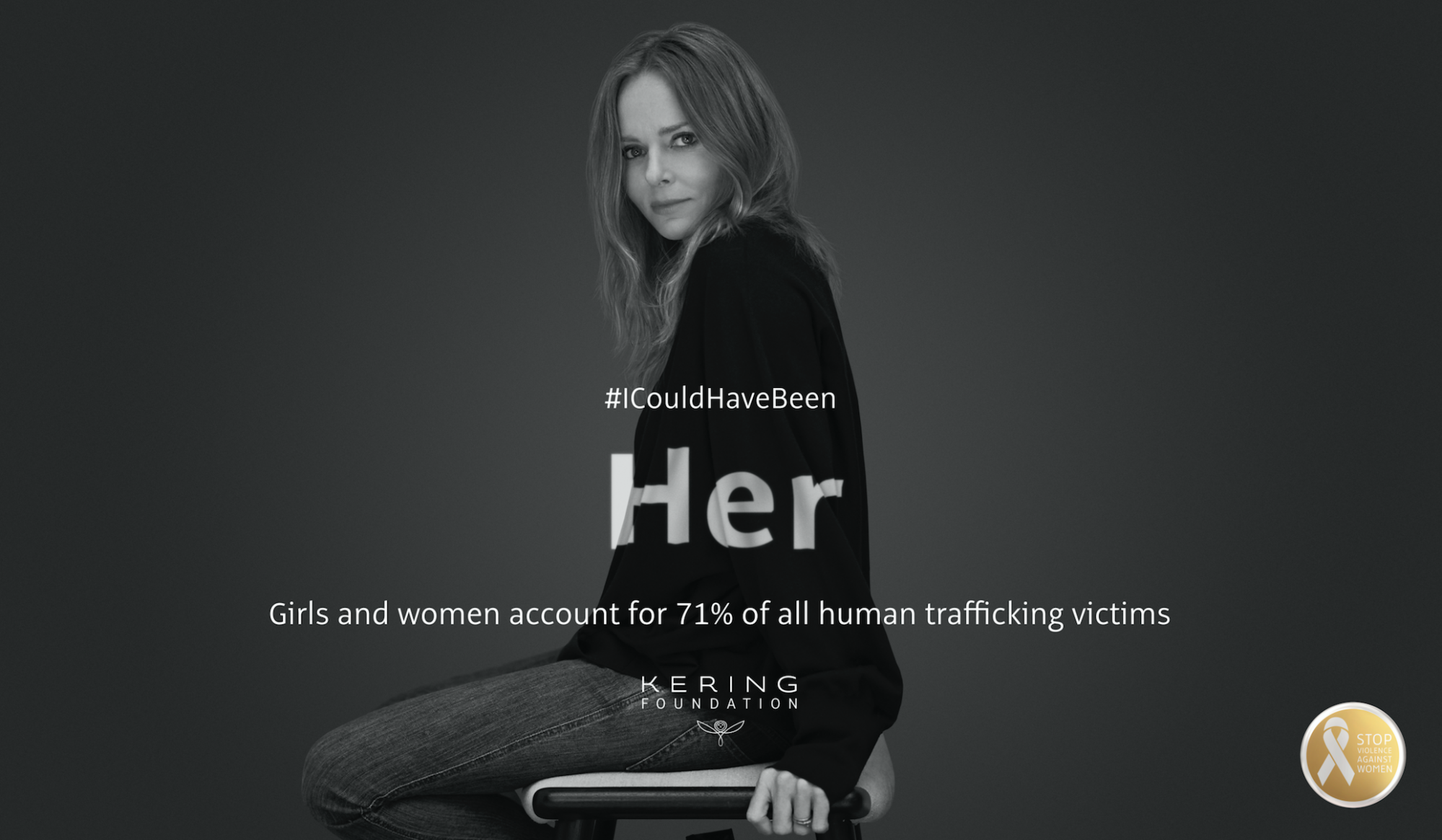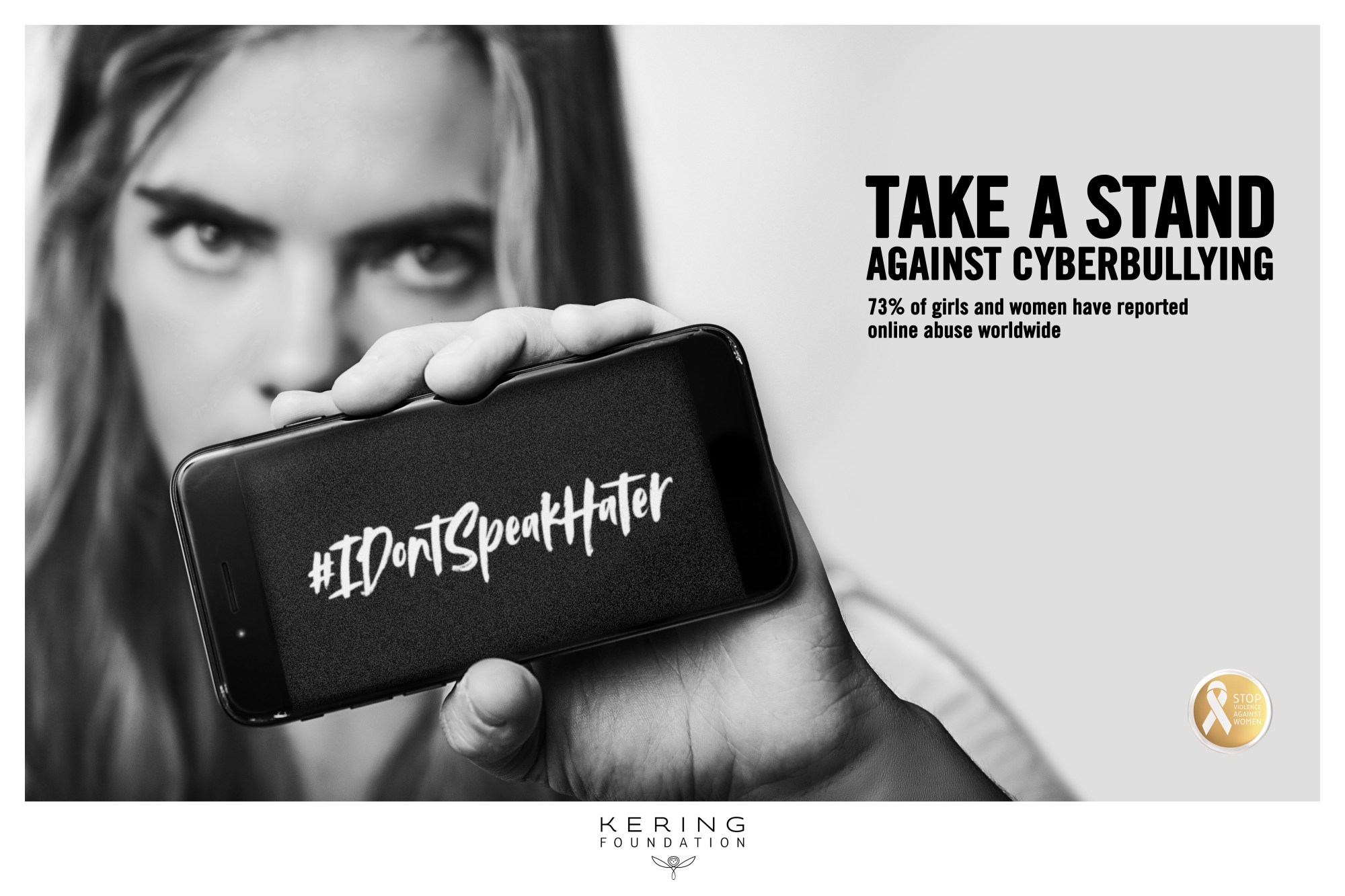One in three women worldwide have been victims of gender violence. It’s a widespread problem, but the Kering Foundation, founded by François-Henri Pinault in 2008, is trying to change that, bringing visibility to gender-based violence across the world. And in the decade since its inception, the way we talk about gender-based violence changed considerably. The #MeToo movement, which began online, has illuminated the systematic sexual abuse and harassment of women and girls like never before. But as social media has become a force for social justice and a space to call out misogyny and abuse, it has also become an arena for abuse to play out.
This year, the Kering Foundation’s focus is on tackling just that, with a campaign to engage and mobilise the young men of Gen Z to combat cyberbullying. They’re working closely with Project Dot, a youth programme run by the New York City Alliance Against Sexual Assault which educates teens from underserved communities in the city on issues of consent, relationship and the pressures of social networking. And, while the charity focusses on violence against women, it also aims to alleviate the pressures toxic masculinity can place on young men –– teaming up with Promundo to support its programme Manhood 2.0, and aiming to educate Gen Z men on how harmful and damaging our current societal ideas about manhood can be.
As they look to introduce a new generation of mindful, tolerant men and women who abhor gender violence in all its forms, i-D sat down with Kering Foundation Executive Director Celine Bonnaire to look back on a decade spent fighting the good fight.

Why did the Kering Foundation originally decide to focus on tackling violence against women?
François-Henri Pinault founded the Kering Foundation to end violence against women after becoming aware of a staggering statistic: one in three women around the world is victim of abuse. It is a universal issue whatever the country, the culture or the social class. 60% of Kering employees are women and 80% of its customers as well. François-Henri Pinault wanted the group to commit to a cause where it could make a real difference. By making this crucial mission the focus of every action and mobilisation campaign over the past decade, we’ve become a pioneer, leading others on the road to change.
Thinking particularly about this year’s topic, how big an issue is cyberbullying, particularly from young men?
Worldwide, over half of adolescents and teens have been bullied online, and about the same number have engaged in cyberbullying. This staggering statistic includes both young men and young women. Nevertheless, women are 27 times more likely to be bullied online than men. Cyber violence is often also an extension of domestic violence. According to the European Union Agency for Fundamental Rights, 70% of women who have experienced cyber stalking have also experienced at least one form of physical or sexual violence from an intimate partner.
Why has the Foundation decided to focus so much on Gen Z this year?
Generation Z is the first generation to live so much of their lives online. And as mentioned before, they are direct victims of cyberbullying. But we believe they are also a generation who can make change happen, by standing up and intervening to support their friends?


How has #MeToo affected issues of gender and sexual violence?
MeToo has allowed the voices of women survivors to be heard. The silence around sexual violence has been broken, across borders, across social classes, across industries. It has built on the work that the women’s organisations and movements have been doing for many years. We all hope this new climate will reduce impunity and will be translated into laws that are enforced.
What do you hope to achieve and change with this year’s campaign?
Like any other violence, the less you talk about it, the more impunity it gets. So, with the #IDontSpeakHater campaign, the Kering Foundation wants to draw attention to the issue of online abuse for Generation Z and its disproportionate targeting of girls and women.
Secondly, we want to make Gen Z understand that this violence is real. It can happen anywhere, anytime and the psychological harm of cyberbullying is not different from bullying in real life: stress disorders and trauma, anxiety, sleep problems, depression, and physical pain. To stop this, we hope that Gen Z will stand up in solidarity with their friends through bystander intervention.
What does The Kering Foundation hope to achieve and change in the next 10 years?
Our approach will remain the same when talking of co-constructing impactful programmes and fostering multidisciplinary and coordinated approaches. The Kering Foundation will deepen current partnerships with survivor-centred local organisations that provide comprehensive services to women. But we will also forge new partnerships to expand our prevention work. There is some inspiring work done in the Americas, engaging young men and boys. So going forward, the Kering Foundation will support programs working in particular with youth to challenge harmful belief systems and the question of masculinity.
